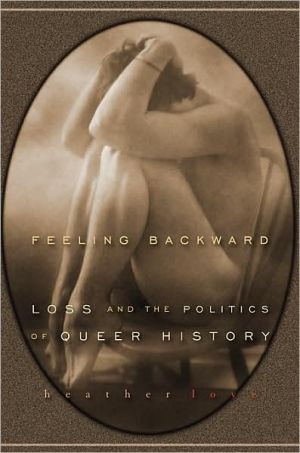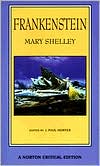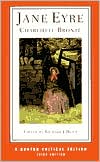Feeling Backward: Loss and the Politics of Queer History
Feeling Backward weighs the costs of the contemporary move to the mainstream in lesbian and gay culture. While the widening tolerance for same-sex marriage and for gay-themed media brings clear benefits, gay assimilation entails other losses—losses that have been hard to identify or mourn, since many aspects of historical gay culture are so closely associated with the pain and shame of the closet.\ Feeling Backward makes an effort to value aspects of historical gay experience that now...
Search in google:
Feeling Backward weighs the costs of the contemporary move to the mainstream in lesbian and gay culture. While the widening tolerance for same-sex marriage and for gay-themed media brings clear benefits, gay assimilation entails other losses—losses that have been hard to identify or mourn, since many aspects of historical gay culture are so closely associated with the pain and shame of the closet.Feeling Backward makes an effort to value aspects of historical gay experience that now threaten to disappear, branded as embarrassing evidence of the bad old days before Stonewall. It looks at early-twentieth-century queer novels often dismissed as "too depressing" and asks how we might value and reclaim the dark feelings that they represent. Heather Love argues that instead of moving on, we need to look backward and consider how this history continues to affect us in the present.Through elegant readings of Walter Pater, Willa Cather, Radclyffe Hall, and Sylvia Townsend Warner, and through stimulating engagement with a range of critical sources, Feeling Backward argues for a form of politics attentive to social exclusion and its effects.Rick Taylor - Feminist ReviewFeeling Backward is a brilliant book that attempts the "impossible" and succeeds. Using Michel Foucault and Eve Sedgwick as theoretical touchstones, and incorporating Raymond Williams's "structures of feeling," Heather Love "feels backward" to reimagine and connect with aspects of a queer past that had been rendered invisible. In doing so--in risking (as she puts it) the fate of Lot's wife in turning back to revisit a painful past--she embraces the ruins, the "fugitive dead," the loneliness and failures and all the "negative affect" that need to be reclaimed as part of that history...Love moves bravely backwards to that murky time, the "queer life before Stonewall," and then crosses the modernist line backwards to feel what has been lost. In doing so she has made a profoundly imaginative and powerful contribution to queer history.
Introduction 11 Emotional Rescue: The Demands of Queer History 312 Forced Exile: Walter Pater's Backward Modernism 533 The End of Friendship: Willa Cather's Sad Kindred 724 Spoiled Identity: Radclyffe Hall's Unwanted Being 1005 Impossible Objects: Sylvia Townsend Warner and the Longing for Revolution 129Epilogue: The Politics of Refusal 146Notes 165Acknowledgments 189Index 193
\ ChoiceIn this interesting study of modernist literature and the challenges of history, the author encourages readers to consider how early-20th-century moments once labeled embarrassing, troubling, and evil continue to have an affect. Drawing from the psychoanalysis of Jacques Lacan, the Marxist philosophy of Raymond Williams, and other schools of thought, Love rereads the works of Radclyffe Hall, Walter Pater, Willa Cather, and Sylvia Townsend Warner—often considered to turn away from an image of a brighter future for queer readers—in order to consider the "backward feelings" of shame, depression, and regret and describe how these texts have fallen into critical disrepute among queer theorists and scholars...This book is for those interested in the politics and history of emotion and sensibility.\ — J. Pruitt\ \ \ \ \ \ Feminist ReviewFeeling Backward is a brilliant book that attempts the "impossible" and succeeds. Using Michel Foucault and Eve Sedgwick as theoretical touchstones, and incorporating Raymond Williams's "structures of feeling," Heather Love "feels backward" to reimagine and connect with aspects of a queer past that had been rendered invisible. In doing so—in risking (as she puts it) the fate of Lot's wife in turning back to revisit a painful past—she embraces the ruins, the "fugitive dead," the loneliness and failures and all the "negative affect" that need to be reclaimed as part of that history...Love moves bravely backwards to that murky time, the "queer life before Stonewall," and then crosses the modernist line backwards to feel what has been lost. In doing so she has made a profoundly imaginative and powerful contribution to queer history.\ — Rick Taylor\ \ \ \ Gay and Lesbian Review WorldwideFeeling Backward is a brilliant work...Love looks fearlessly at literature from the past in which circumstances related to gender tend to produce victims rather than heroines. She establishes that our literature has been affected by homophobia and demands that we consider the implications of this fact. Love contends that we need to look at history and social politics less like Lot's wife, who's destroyed by looking back, and more like Odysseus, who listens to the past but isn't destroyed by it. The past haunts us whether we acknowledge it or not; we may be "looking forward," as we like to assure ourselves, even as we're "feeling backward."\ — Martha Miller\ \ \








